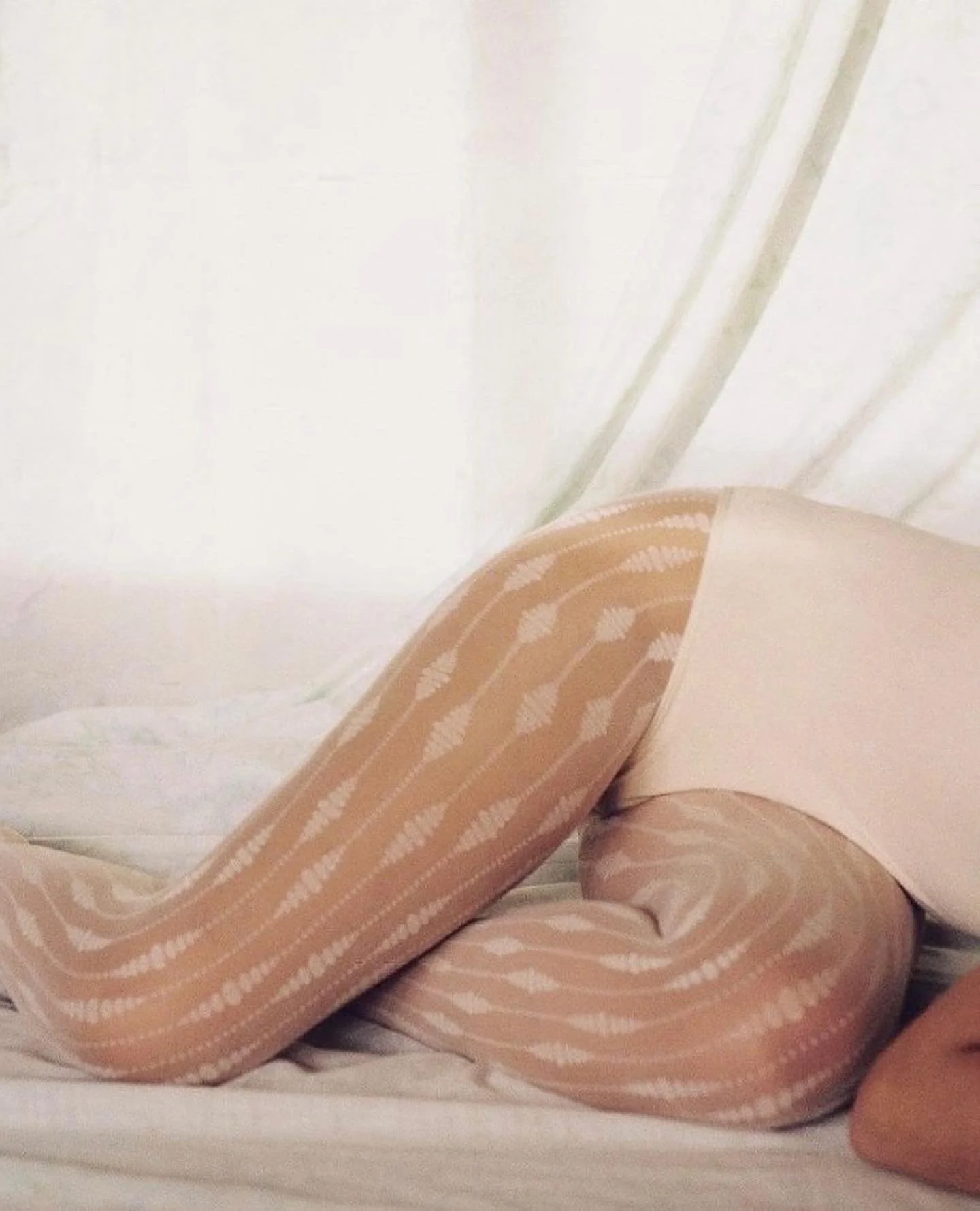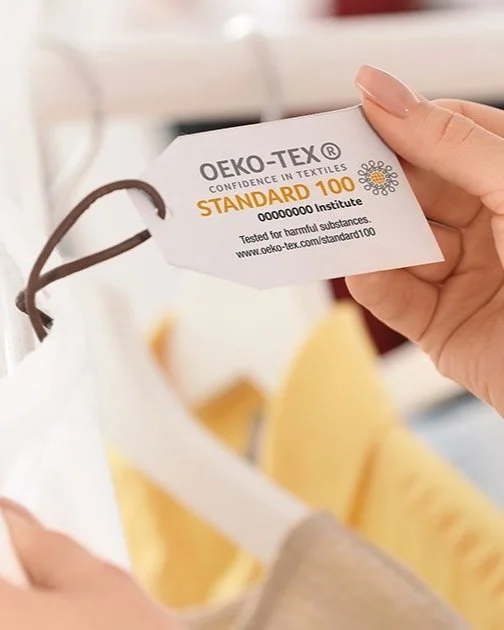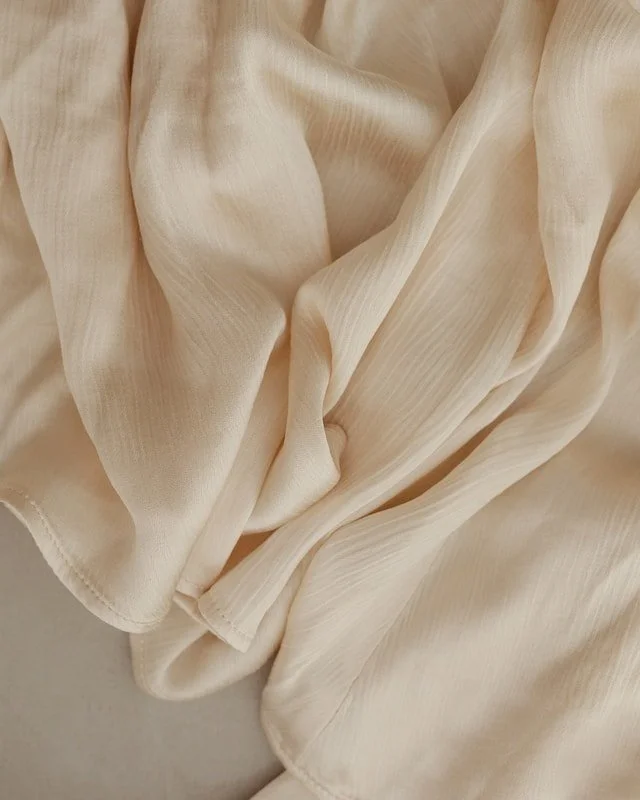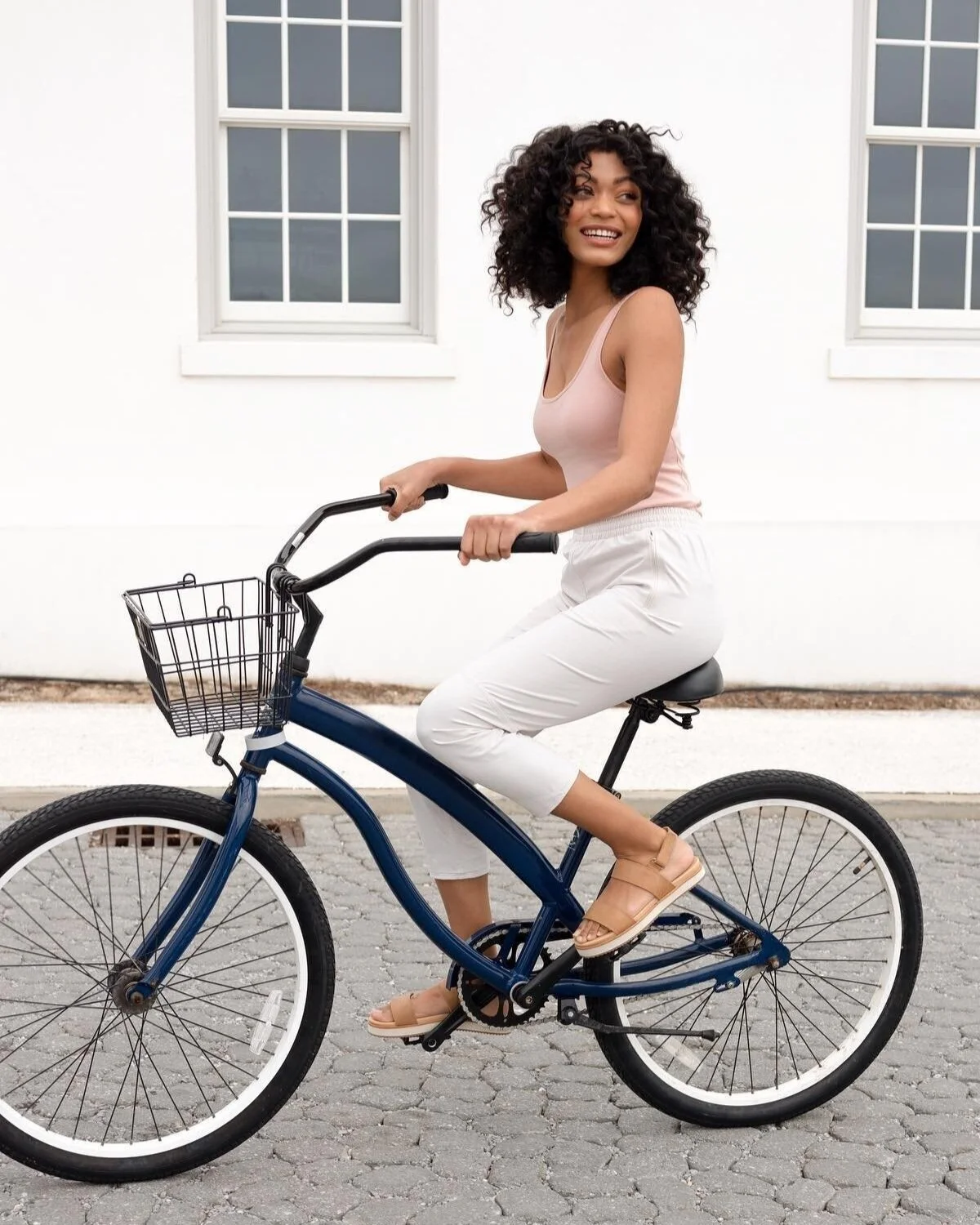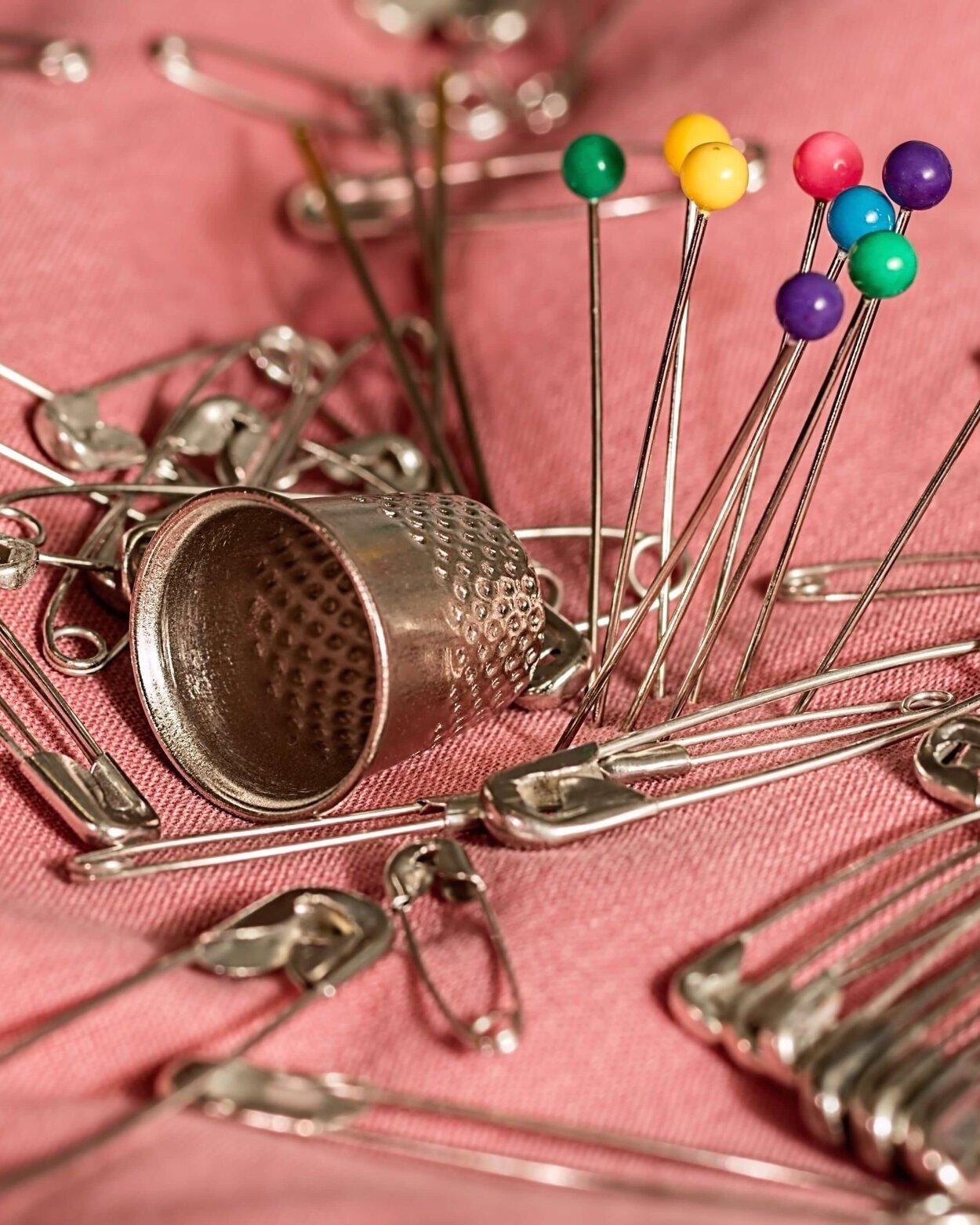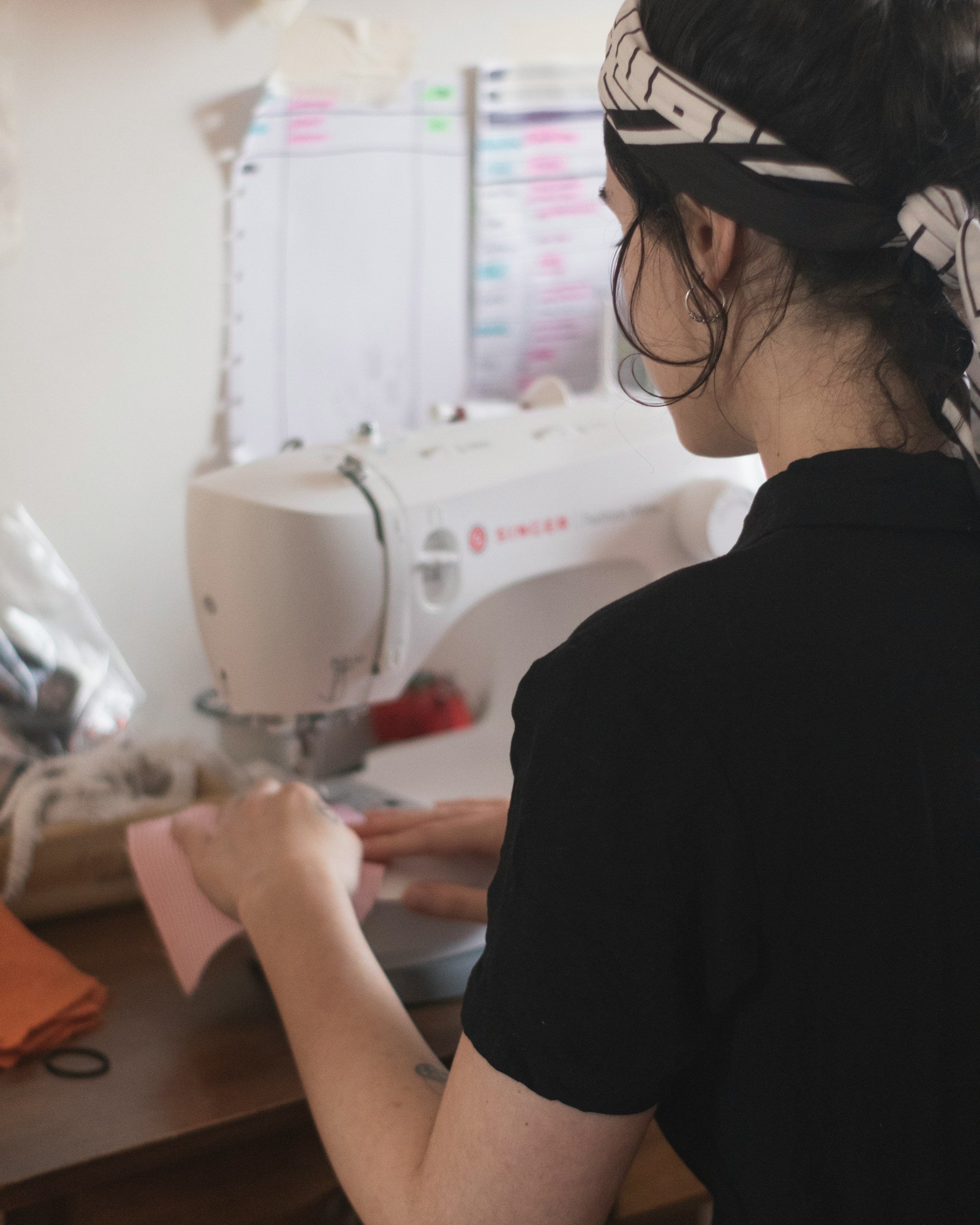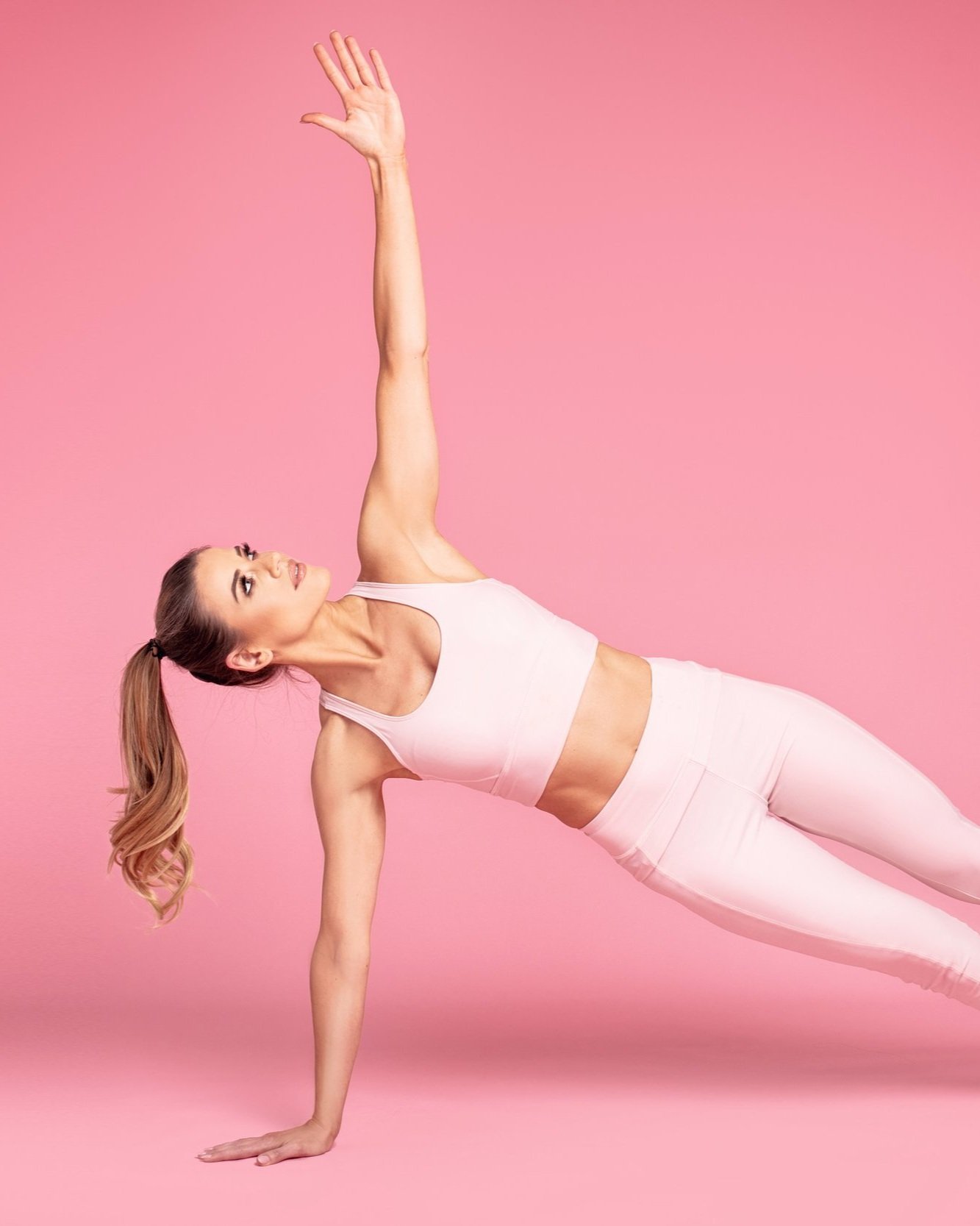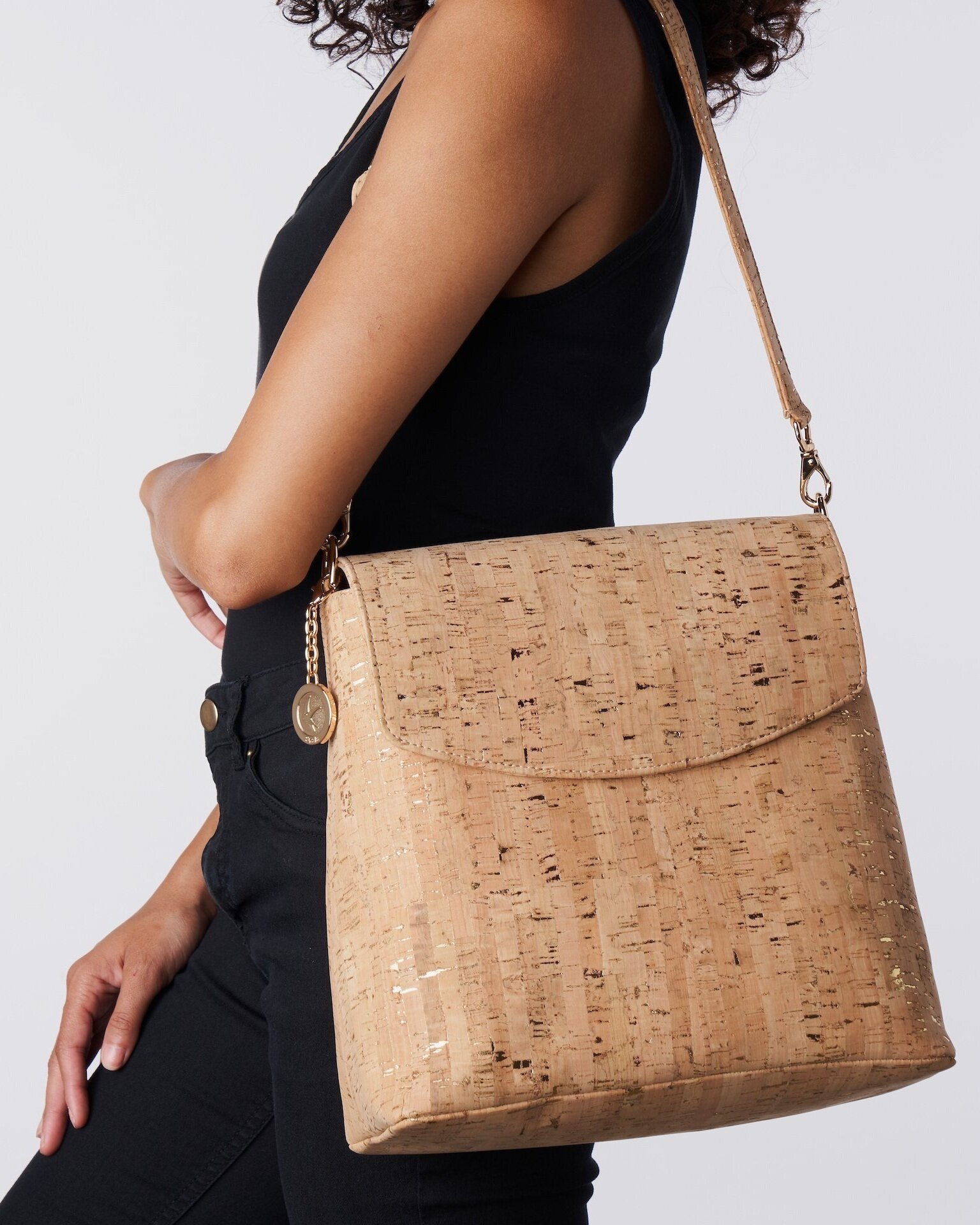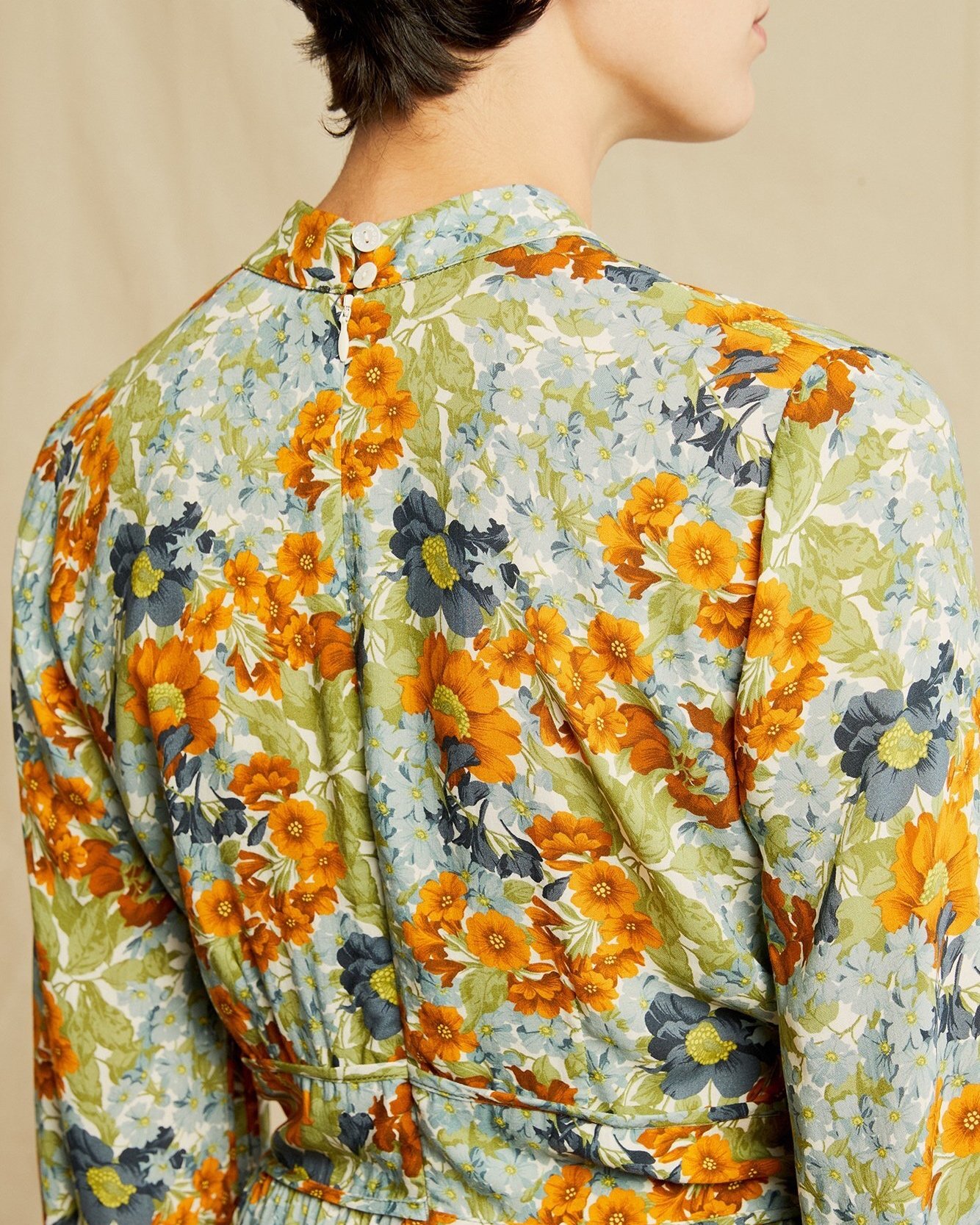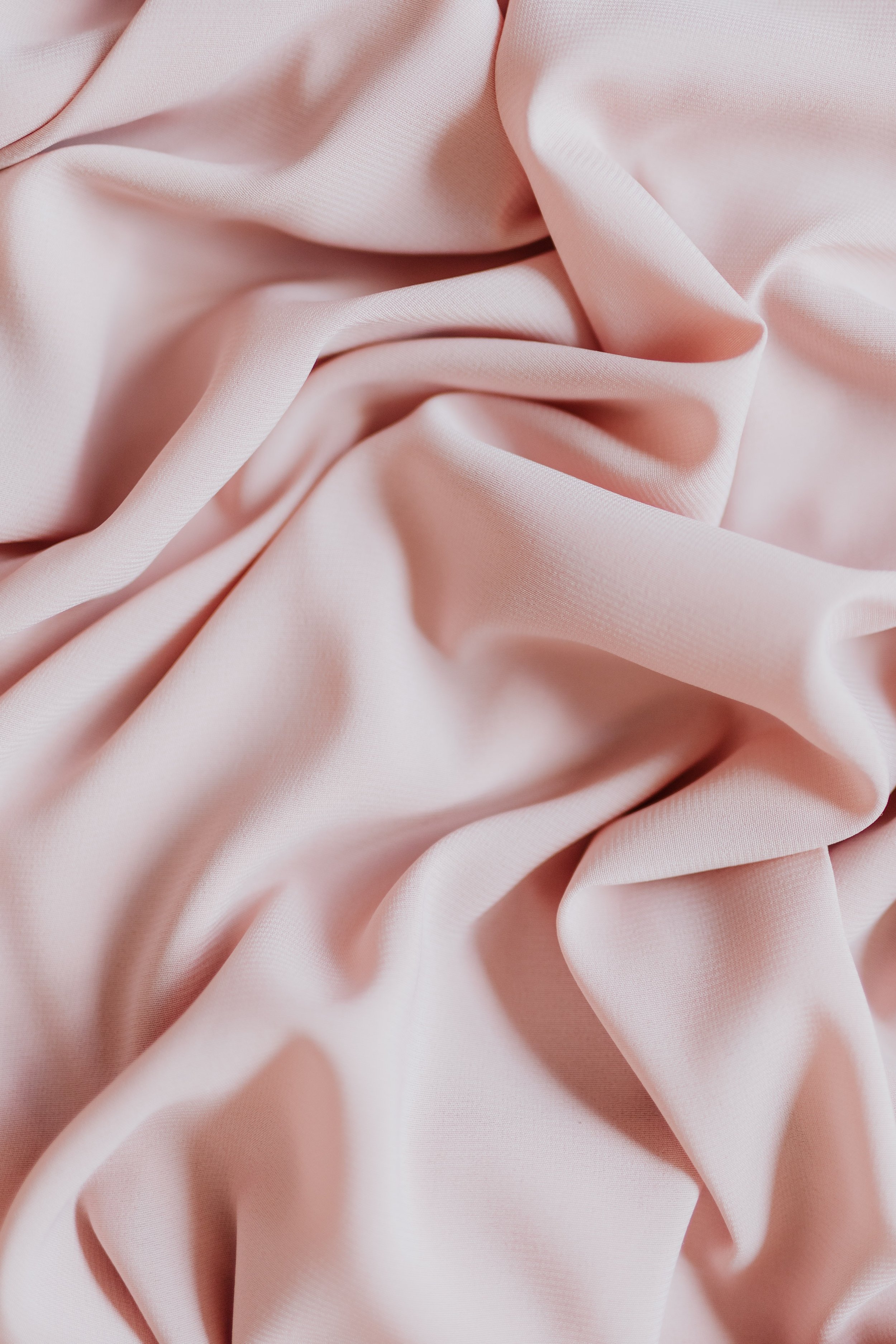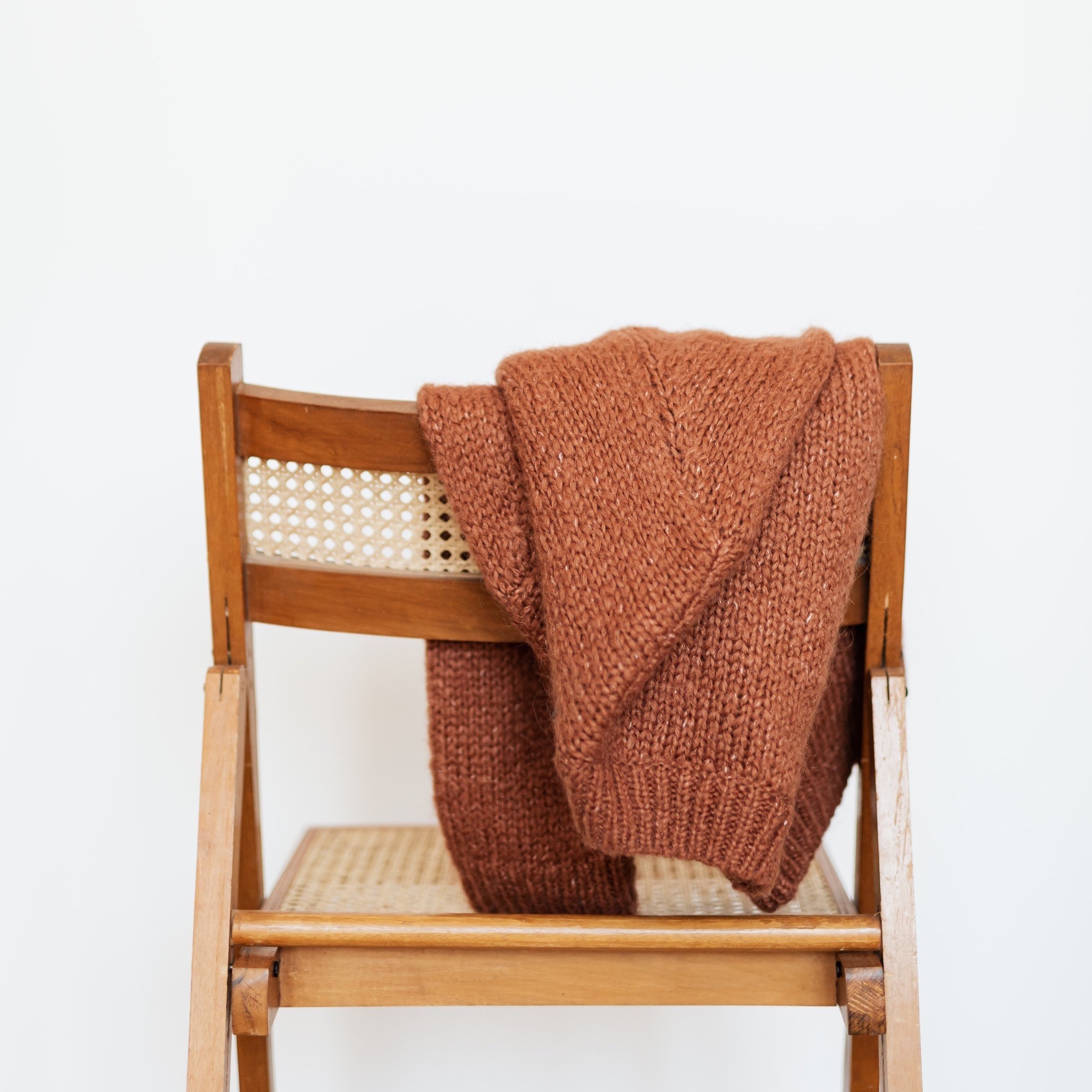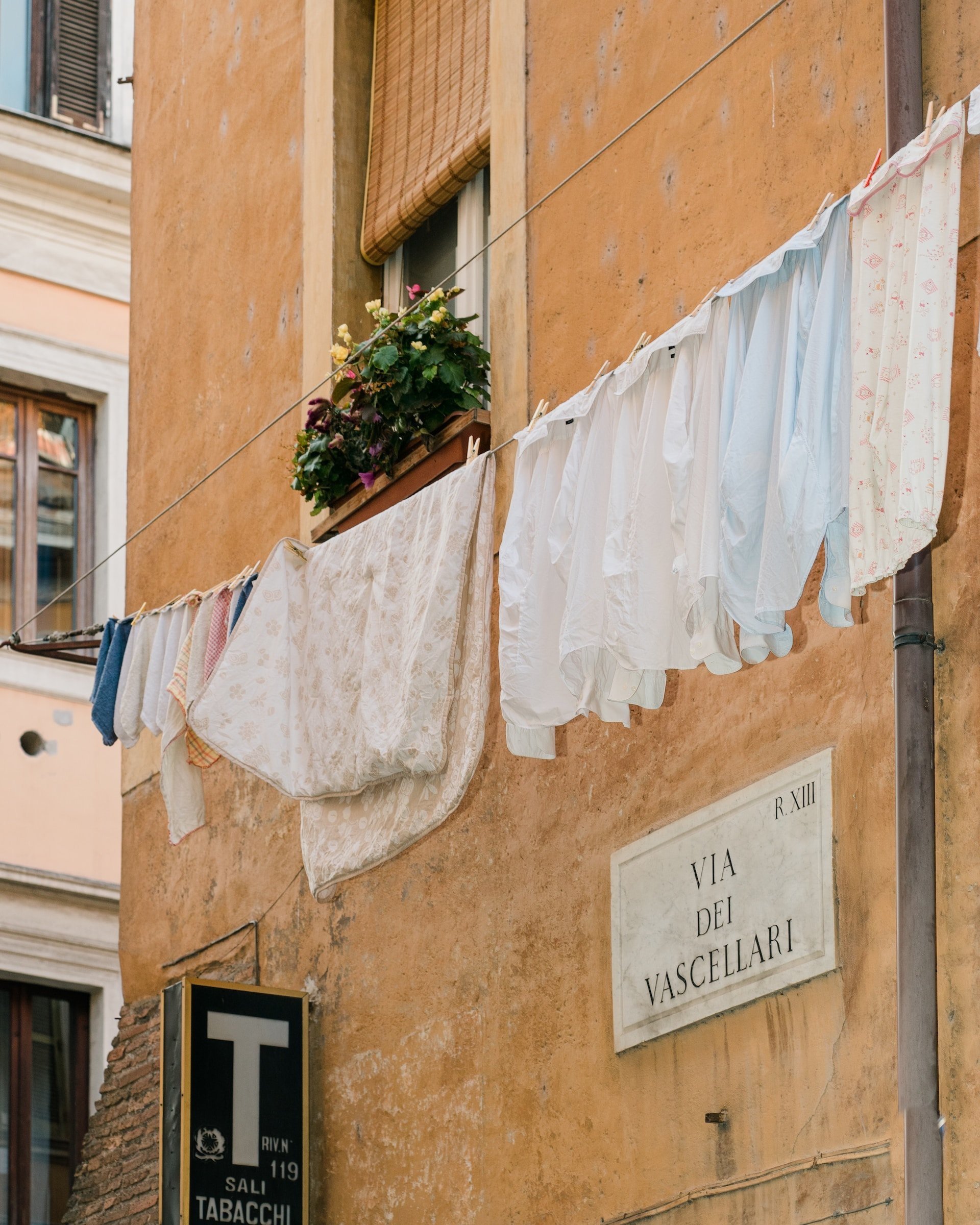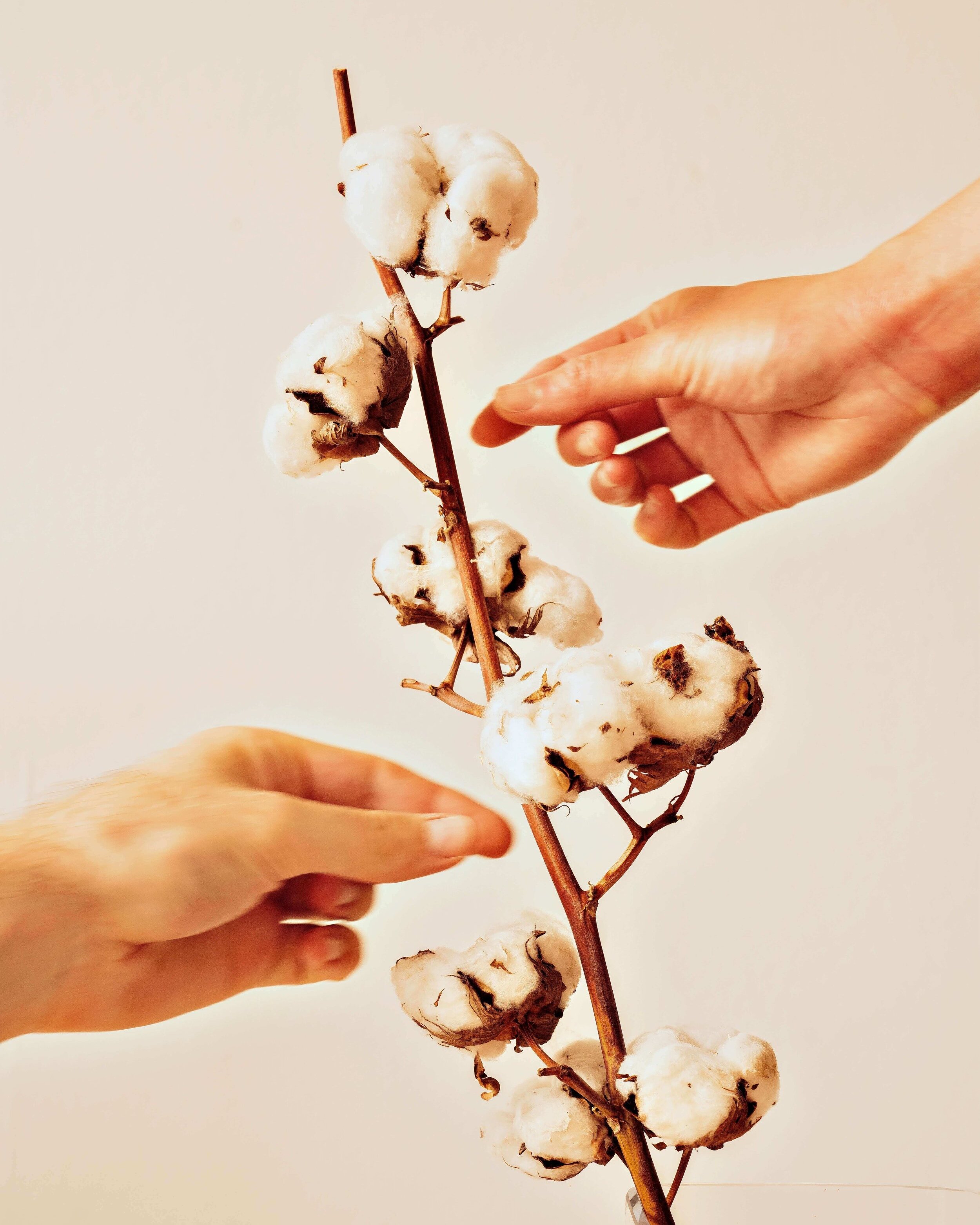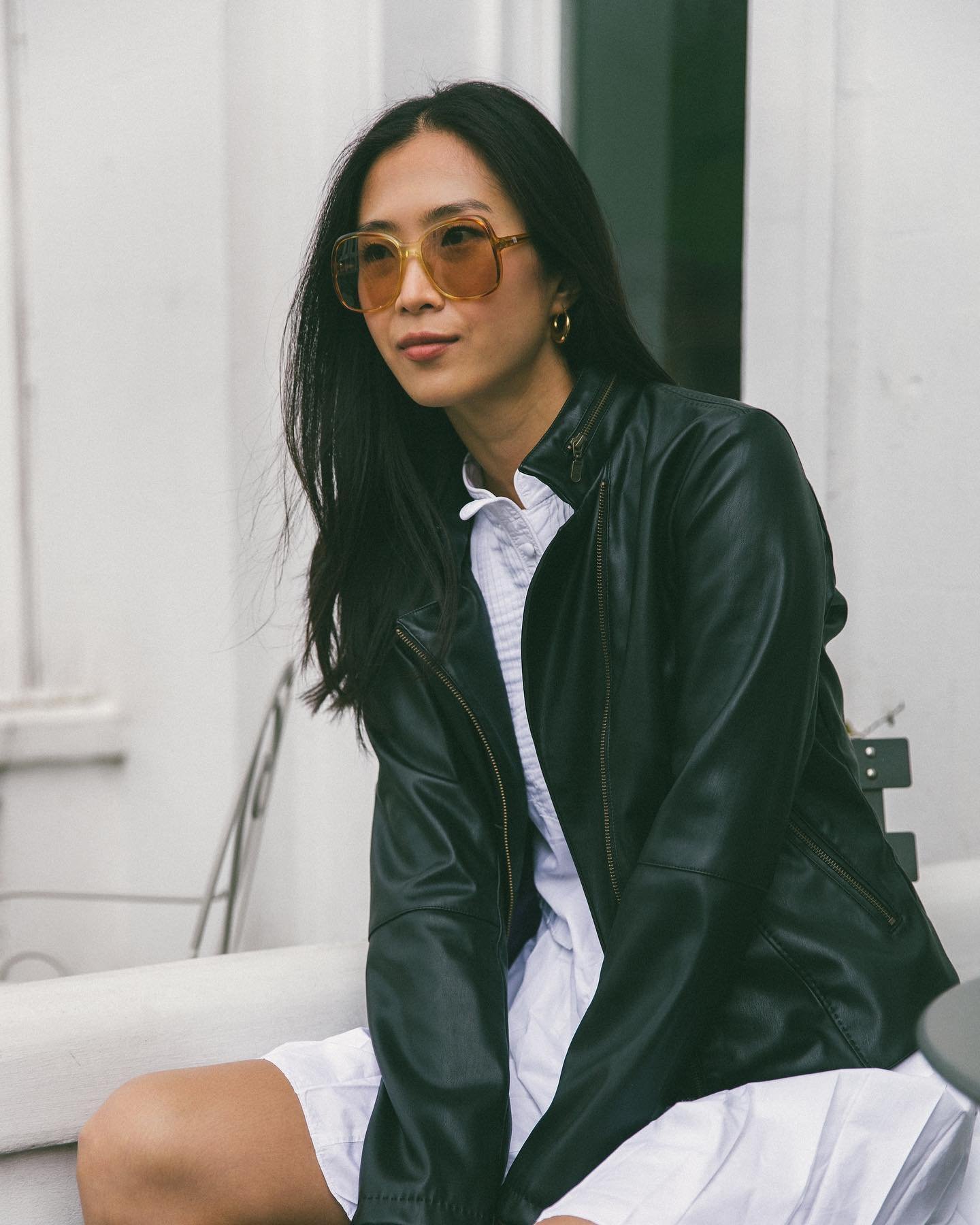6 Innovative Fabrics to Watch For in 2024-25
Sustainable, Innovative Fabrics We Love
While fast fashion and synthetic fabrics are usually the trends making headlines, innovative fabrics are still making their way into mainstream fashion. By using natural resources and recycling the typically discarded materials, eco-friendly textiles have the potential to change the clothing industry and their production. From fruit and vegetables to the ocean, forward-thinking brands are finding more and more ways to repurpose organic resources, here are 6 innovative fabrics to watch out for!
Our Favorite Innovative Fabrics For 2024:
Image: Stella McCartney
1. MIRUM®
This plant-based material utilizes coconut fiber, natural rubber, and cork to replicate a texture similar to leather. It is completely free from plastic, fully biodegradable, and can be customized for a specific feel or durability. Minimum water and energy are needed to create the material, making it a more sustainable option.
We have a whole post dedicated to this textile if you want to read more!
How it can be used: car interiors, furniture, accessories, shoes, and clothing.
Image: Stella McCartney
2. Bananatex®
Created as the world’s first biodegradable and regeneratively grown fabric made from Abacá banana plants. This durable fiber uses a part of the plant that typically goes to waste, but the banana fiber is very strong, naturally water-resistant, and functional for various uses. Bananatex is already making its way into mainstream fashion and is being used by popular brands like Stella McCartney, Balenciaga, and COS. You can watch the full process in their short film "A Textile (R)evolution"
How it can be used: backpacks, suitcases, tech accessories, shoes, outdoor gear, and clothing.
Image: Drew Veloric
3. Orange Fiber
Who knew citrus peels were high fashion? Orange Fiber is a patented process and brand that creates textiles from citrus fruit discards that can be used as a biodegradable alternative to silk. Already squeezing its way into luxury fashion brands like Salvatore Ferragamo, this innovative fabric also provides an opportunity to reduce food industry waste.
How it can be used: scarves, blouses, drapery, pillows, interior handbag linings.
Image: Hublot
4. S.Café®
By using recycled coffee grounds and plastic, S.Cafe is a new solvent-free, UV-resistant, moisture-wicking innovative fabric. It also has natural odor control, can be spun into yarn, and reduces CO2 emissions compared to conventional carbonized materials. Creating S.Cafe fabrics allows an alternative use for coffee waste and turns it into a new resource. S.Cafe is widely versatile, with the ability to be made into fleece, thermal, and outdoor wear membrane materials while maintaining the same sustainable process. The technology was invented by Singtex in 2008 and has already received recognition from the top three global invention award organizations.
How it can be used: luggage, bedding, shoes, accessories, outdoor gear, and clothing.
5. OYSTEX
Created by the clothing brand Jetty, OYSTEX is bringing the ocean to your closet. By combining ground oyster shells, recycled plastic, and natural fibers, OYSTEX is created for functional performance fabric. It is anti-static, anti-odor, breathable, and moisture-wicking. OYSTEX makes a way to reduce seafood industry waste and create an innovative fabric from what is typically viewed as trash. While natural oyster shell waste isn’t much of an environmental concern, when large quantities of shells are dumped back into the ocean, it causes severe ecosystem disruption. On land, oyster shells take several years to break down, resulting in the quick filling of landfills.
How it can be used: clothing, activewear, outdoor gear.
6. Fibe
Just when we thought there was no other way to use a potato, Fibe proves us wrong. Skip mashed, baked, fried, and distilled potato fiber is one of the newest innovative fabrics on the scene. With the patent-pending technology, Fibe claims the fabric could replace and have the capacity to fulfill up to 70% of the world’s demand for natural fiber. Created from the unusable stems and leaves of the potato, Fibe has the potential to change the fashion and agricultural industry. Fibe is biodegradable, compostable, and recyclable, making it an exciting alternative to synthetic fabric.
How it can be used: everyday clothing and apparel.
About the Author
Karmen Flores is a creative entrepreneur based in Michigan. Karmen shares all about plant-based and sustainable, intentional living on her blog Karmen Collective. From recommendations for all things plant-based to tips for living more sustainably, Karmen makes living with intention less intimidating and more accessible. You can connect with Karmen on Instagram.
MAKE SURE TO PIN THE PHOTO BELOW TO SAVE THIS POST FOR LATER!
WANT TO FIND MORE SUSTAINABLE BRANDS?
The Brand Directory features hundreds of sustainable brands approved by us!
We have broken everything down by category for easy shopping, along with discount codes unique to Sustainably Chic viewers.










